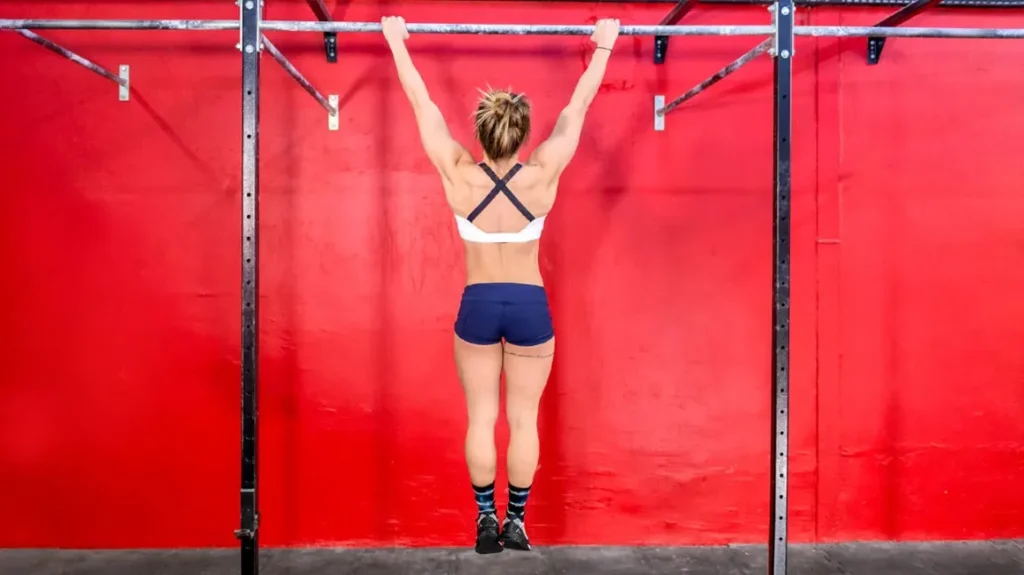In this post we discuss why you shouldn’t use dead hangs for shoulder pain, despite their popularity on social media.

Dead hangs are regularly recommended for shoulder pain, with all sorts of spurious reasons given.
I’ve read everything from our connection to tree swinging chimpanzees, to the idea that this position can decompress the shoulders and spine.
Here are the top three reasons why you shouldn’t use dead hangs if you have shoulder pain.
What is causing your shoulder pain?
The first thing to consider is what’s causing your shoulder pain? For many people this will be unknown. Others may have been given a diagnosis like ‘shoulder impingement.’
Regardless, it’s important to understand that unless a scan has taken place, a diagnosis by a health care professional is an educated guess at best.
The dead hang places a large amount of force through a relatively unstable joint, at the end of its range of motion. If there is an injury such as a labral tear, or rotator cuff tendon damage, this is unwise.
What movements provoke your shoulder pain?
Like many people with shoulder pain, you may find raising your arms overhead causes discomfort. This is the exact position that your shoulders are forced into in the dead hang.
If you can’t achieve a particular position due to pain or muscular dysfunction, using an external force to get there rarely solves the problem.
Are your shoulders unstable?
Some people with shoulder pain have unstable shoulders. In other words their ability to tolerate force at their shoulders is compromised.
We’ve already said that due to its large range of available motion, the shoulder is an inherently unstable joint.
It’s been shown that a mere 16kgs of force pulling in a superior direction is enough to produce a dislocation in artificial shoulders.
Does pulling on your shoulders with the weight of your body make any sense in these circumstances? Probably not.
Summary
Dead hangs can be described as the nuclear option for shoulder pain. If you really can’t figure out what’s going on, just hang from a bar.
Whilst some people may experience temporary relief using this method, it can cause more issues than it solves, especially if you have damage or instability in your shoulders.
For a more considered approach read this series of posts on how to recover from shoulder pain.